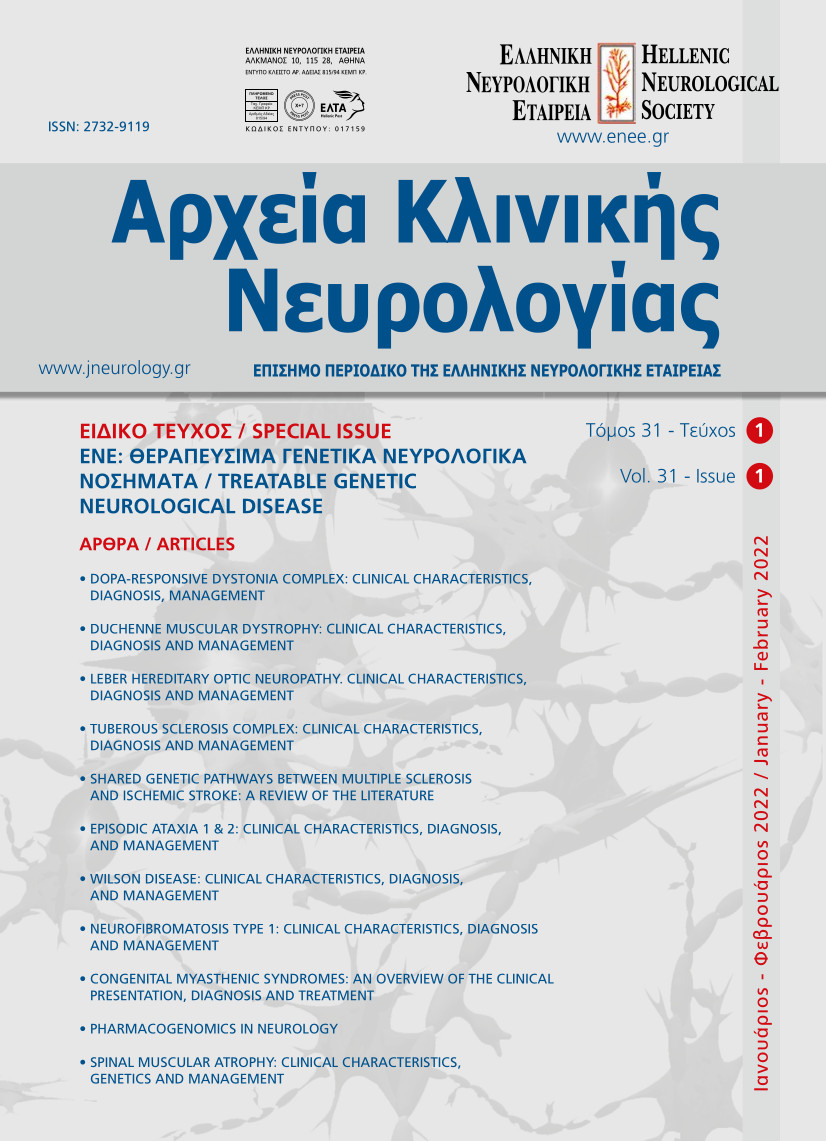SHARED GENETIC PATHWAYS BETWEEN MULTIPLE SCLEROSIS AND ISCHEMIC STROKE: A REVIEW OF THE LITERATURE
Λέξεις-κλειδιά:
multiple sclerosis, stroke, ischemic stroke, genome-wide association studiesΠερίληψη
Multiple sclerosis (MS) and stroke are both neurological diseases that affect the central nervous system
(CNS) and lead to long-term motor and sensory deficits and cognitive impairment. Both diseases detrimentally
affect the quality of life of patients and their families. Clinical studies on patients with MS have
revealed an increased incidence of any type of stroke, including ischemic stroke (IS), hemorrhagic stroke
and transient ischemic attack (TIA) compared to the general population. Both MS and stroke are heterogeneous
diseases that have a genetic component. As ischemic is the most frequently encountered type of
stroke, the majority of available evidence on MS patients relates to IS. The increased incidence of IS in MS
patients points out the need for exploration of the underlying genetic component link of both diseases.
The identification of shared risk genes between the two diseases is of great importance to develop therapies
that will be more effective than the currently available treatments or will be targeted at MS patients
at high risk for stroke. Here, we describe the main genetic findings from genome-wide association studies
that provide evidence in favour of the genetic link between MS and IS.


